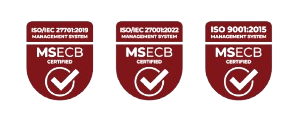Revolutionizing Rural Access: Unleashing Opportunities through Digital Identity Enrolment
Introduction
In today’s interconnected world, access to digital identity has become a necessity for economic growth and social development.
However, one significant challenge that persists in many parts of the world, particularly in rural areas, is the lack of proper identification systems. Without a valid identity, individuals face numerous barriers when it comes to accessing essential services, participating in the formal economy, and exercising their rights.
Recognizing the transformative power of digital identity, efforts are underway to revolutionize rural access through digital identity enrolment. This article explores the potential of digital identity enrolment in unlocking opportunities and driving inclusive growth in rural communities.
The Significance of Digital Identity
Digital identity refers to a unique representation of an individual in the digital . It provides a means to authenticate and verify one’s identity in online transactions and interactions. In an increasingly digitized world, digital identity plays a pivotal role in enabling individuals to access various services, ranging from healthcare and education to banking and government benefits. It empowers people by granting them the ability to prove their identity remotely, eliminating the need for physical documents and reducing bureaucracy.
Challenges in Rural Areas
Rural areas often face unique challenges that exacerbate the issues related to identity verification. Some of them include:
Limited Access to Government Services:
- Rural areas often lack nearby government offices or service centres, making it difficult for residents to access essential government services related to identity verification.
- The distance to government offices poses a significant challenge for individuals who need to physically present themselves for identity verification processes, resulting in time-consuming and costly journeys.
- Limited access to government services hampers rural populations’ ability to obtain official identification documents, such as birth certificates or national identification cards, which are essential for digital identity enrolment.
Lack of Reliable Infrastructure:
- Rural areas frequently suffer from inadequate or unreliable infrastructure, including limited internet connectivity and intermittent power supply.
- The absence of reliable internet services hinders the establishment of digital systems for identity verification, as databases require a stable and high-speed internet connection.
- Power outages and unstable electricity supply in rural areas pose challenges for digital identity enrolment processes.
Inadequate Documentation and Record-Keeping:
- In rural areas, maintaining proper documentation and records of individuals can be challenging due to various reasons, such as poor record-keeping practices, or lack of awareness about the importance of documentation.
- Incomplete or inaccurate documentation poses difficulties in establishing a reliable and verifiable identity for rural residents
- In some cases, individuals may not possess the necessary supporting documents required for identity verification, further impeding their ability to enrol in digital identity systems.
As a result, rural populations are often excluded from the benefits of digital services and are unable to fully participate in economic and social activities.
Revolutionizing Rural Access
Digital identity enrolment holds immense potential in revolutionizing rural access and bridging the digital divide. By providing a robust and secure identification system, rural communities can overcome the challenges they face and unlock a myriad of opportunities. Here are some key ways in which digital identity enrolment can make a significant impact:
- Access to Basic Services: Digital identity enrolment enables rural populations to access basic services such as Healthcare, Financial Services, Telco Services, and Education, . With a valid digital identity, individuals can verify their eligibility for government schemes and social welfare programs.
- Financial Inclusion: Lack of formal identification often hampers access to banking services for rural communities. Digital identity enrolment can enable individuals to open bank accounts, access credit, and engage in digital payments, thereby promoting financial inclusion and empowering individuals to participate in the formal economy.
- E-Governance and Citizen Services: Digital identity enrolment enables rural residents to participate in e-governance initiatives. It allows individuals to interact with government agencies, apply for documents, track progress, and access various public services online. This reduces the need for physical presence, saving time and resources for both citizens and government officials.
Implementation and Considerations
Implementing digital identity enrolment in rural areas requires a multi-faceted approach that considers the unique challenges and needs of these communities. Some key considerations include:
- User-Friendly Solutions: Digital identity systems should be designed with simplicity and ease of use in mind. User-friendly interfaces, connectivity, and targeted awareness campaigns can enhance adoption and reduce barriers to enrolment.
- Privacy and Security: Robust data protection measures and secure authentication protocols are essential to instil trust in digital identity systems. Safeguards must be in place to protect personal information and prevent misuse.
- Collaboration and Partnerships: Collaboration between government agencies, technology providers, and local communities is essential for the success of digital identity enrolment initiatives. Public-private partnerships can leverage expertise and resources to drive implementation and ensure sustainability.
Conclusion
Digital identity enrolment has the potential to revolutionize rural access and unleash opportunities for individuals and communities in underserved areas.
By overcoming the barriers posed by the lack of identification, rural populations can access essential services, participate in the formal economy, and exercise their rights.
It is imperative for governments, organizations, and stakeholders to collaborate in driving digital identity enrolment initiatives, ensuring that no one is left behind in the digital age. By harnessing the power of digital identity, we can pave the way for inclusive growth, empowerment, and sustainable development in rural communities.
Reach out to us here and find how how we use our online and offline registration feature for identity enrolment to facilitate growth and social inclusion in rural areas.









